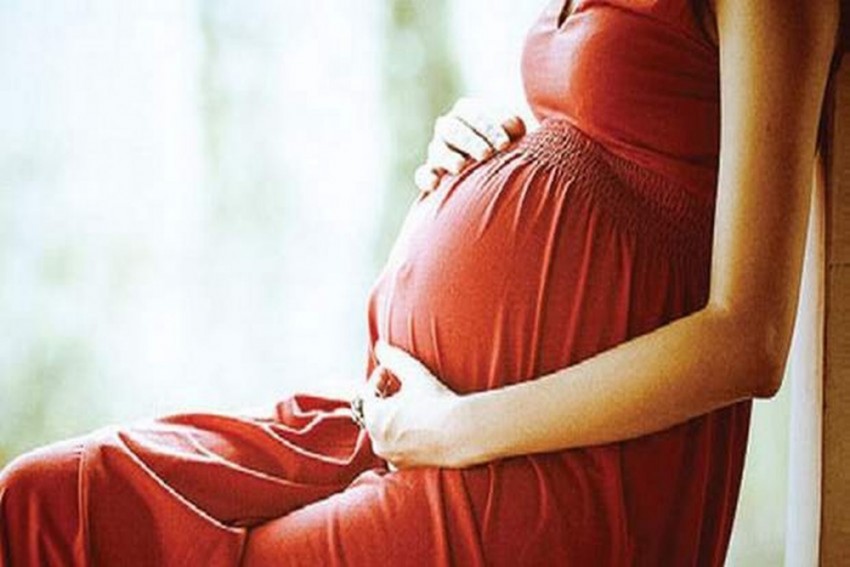
Do COVID-19 vaccines disrupt menstrual cycle or affect fertility?

A heavy arm, headache, bodyache and occasional mild fever are some of the side-effects of the COVID-19 vaccine. These minor adverse reactions are actually common to many vaccines and there is nothing to worry about. However, in the recent past, even established media are screaming with an alarming claim that the COVID-19 vaccine leads to disruption in women’s menstrual cycle and unexpected vaginal bleeding. Indeed, some women complain of these adverse effects in the days following immunization. Also, these problems are not listed as common side effects after the vaccination. But are they related to the vaccine?
“Many things can disrupt menstrual cycles temporarily, and that includes fever, stress, impending wedding, impending unaccustomed journey etc. Many vaccines are also known to trigger minor menstrual changes; however, the cycle comes back to normal in a short period,” says Dr Vineeta Bal, a trained immunologist working at the Indian Institute of Science Education and Research, Pune. Earlier, she was with the National Institute of Immunology and served as a member of the Prime Minister’s task force for ‘women in science’, under the Ministry of Science and Technology.
Dr Bal says the same logic applies for COVID-19 vaccines. “Yes, there are stray reports where menstrual cycle linked changes are reported as adverse events, but they are temporary changes, like vaccine-associated fever. And do not deserve to be listed as anything but a minor adverse event,” she adds.
Nonetheless, vaccine hesitancy is widely prevalent. India’s cumulative COVID-19 vaccination coverage has exceeded 135.25 crore. However, there is a dark side to this exuberant feat; over 11 crore people who have taken the first shot of the COVID-19 vaccine have not got themselves jabbed with the second dose even after the expiry prescribed interval between two doses. Negative reports about the vaccine dissuade women from going for complete (two shots) vaccination.
Surveys indicate that people give an array of reasons for not getting jabbed or skipping the second dose. “After all, there is no pandemic now”; “I seem to be doing good; so why should I get a jab”, “I had the infection after the first dose; perhaps I don’t need to take the second one”.. are some of the common excuses. Supposed disruption of menstrual cycle and unexpected vaginal bleeding after taking the COVID 19 vaccine is one of the crucial dissuasive factors.
An editorial in the prestigious BMJ, “Menstrual changes after COVID-19 vaccination”, by Dr. Victoria Male, a reproductive specialist at Imperial College London, unleashed an avalanche of disquieting media reports that suggest that the COVID-19 vaccine does impact the menstrual cycle. In contrast, the author calls for further research regarding anecdotal claims.
If the association between COVID-19 vaccine and menstrual cycle is purely coincidental, then it is Kākatālīya nyāya (mere accident). This logical fallacy is known in the western tradition as the fallacy of post hoc ergo propter hoc. If the correlation has some underlying cause, then it is a matter that needs to be investigated.
The prolonged pandemic period has added to stress levels. Strict lockdowns, fear of getting infected, loss of near ones have made the situation grim. Undoubtedly, the unprecedented situation has brought out anxiety and tension among people. “Stress can bring about some temporary changes in the menstrual cycle, and vaccines can contribute to that,” says Dr Bal. Thus, COVID-induced stress can trigger temporary and mild changes in the menstrual cycle. Women who experience it may falsely associate it with vaccines and not the underlying mental tension.
Besides, there is an apprehension that the COVID-19 vaccine affects fertility. On this, Dr Bal says that no report indicates effect of COVID-19 vaccine on fertility. Most other vaccines against viral infections currently in use, such as Hepatitis B, influenza, HPV, etc., are not reported to affect fertility adversely. And COVID-19 vaccine is primarily made on the lines of Hepatitis B, influenza, HPV. So, loss of fertility is scientifically improbable. “However, it must be remembered that these vaccines have been in use only for less than 18 months or so, and hence obtaining data will take time,” she said.
On the question of whether we need to be anxious and re-evaluate the COVID vaccine against fertility and pregnancy, Dr Bal said, “Early reports do not ring alarm bells indicating any serious risk to pregnant women. Hence, there is no need to evaluate any additional parameters, including pregnancy and infertility. If there is a regular data collection system, as in the UK, in the long run, real data on fertility effects, if any, will emerge. In India, such reporting and data collection systems do not exist. Hence, reliable data from India is unlikely to emerge.”
If women are still worried about menstrual irregularities, Dr Bal advises them to get supportive treatment, including assurance from doctors and counselors. “They should try not to get stressed about the menstrual cycle returning to the pre-vaccination state. They should also report these irregularities as vaccine-associated side effects on the portal where such events are supposed to be reported,” Dr Bal said.
(The writer is a Delhi-based science writer)


